BigThing recommends 10 masterpieces on artificial intelligence that will guide you and provide you with a wide range of perspectives on this incredible technology.
Throughout our entire history, artificial intelligence has always been a crazy dream, sometimes even seen as a nightmare. We have made great strides since Leonardo da Vinci created a robotic knight in the fifteenth century. In the past century, artificial intelligence has further penetrated into our reality and daily life. There is no doubt that now we are entering a new era of intelligence.
Early computing technologies introduced a new branch of computer science that deals with machine simulation intelligence. In recent years, we have applied AI to some common tasks, such as the use of computers and people in chess matches and other games. However, due to advances in computer technology, today's AI technology is 10 times faster than before. AI can also be defined as the machine's ability to mimic human behavior. The Holy Grail is used to describe artificial intelligence or AGI, just like what most people might think of when they hear AI. With advanced AGI, robots can theoretically do anything that humans can do. This usually reminds people of anthropomorphic robot housekeepers or photos of Westworld type robots.
People can lose themselves in the world of rich history, wild speculation and interesting imaginary AI. Here are some of the top 10 works on artificial intelligence that will guide you and provide you with a wide range of perspectives on this incredible technology.
Understand what is happening on Earth
There are personal assistants in our pockets and desks. Automated factories and self-driving cars are testing every day. We live in the future that we have imagined. Here are some books that will help us move to the next stage.
Machines of Loving Grace: Finding Common Ground Between Humans and Robots
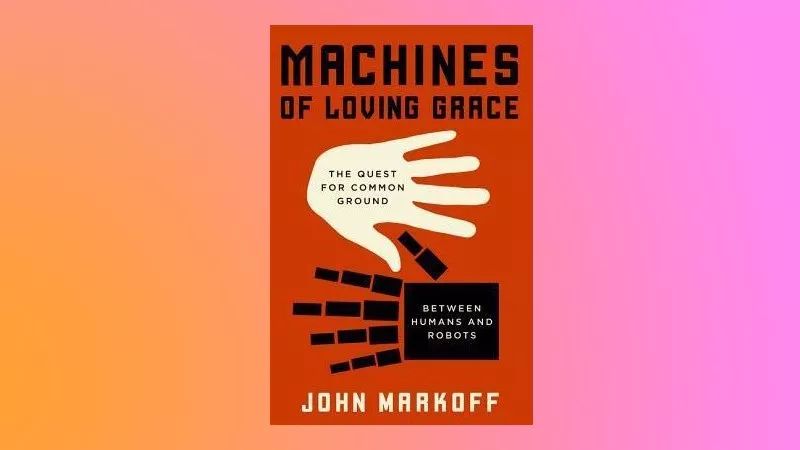
The author and journalist John Markoff provided a detailed history of robotics and artificial intelligence. He is interested in the interaction between human society and the increasing automation and intelligence in the workplace and other areas. Markoff discusses the designer's perspective behind these machines and the contradictory nature of the potential of this new technology. He pointed out: "The same technology that can expand human intelligence can also replace humans."
Markoff wrote about the difference between the concepts of AI and IA, or the connection between artificial intelligence and intelligent automation. He believes that this and the building of human elements in technology is one of the more important aspects of this area.
Isaac Asimov's Robot Series:
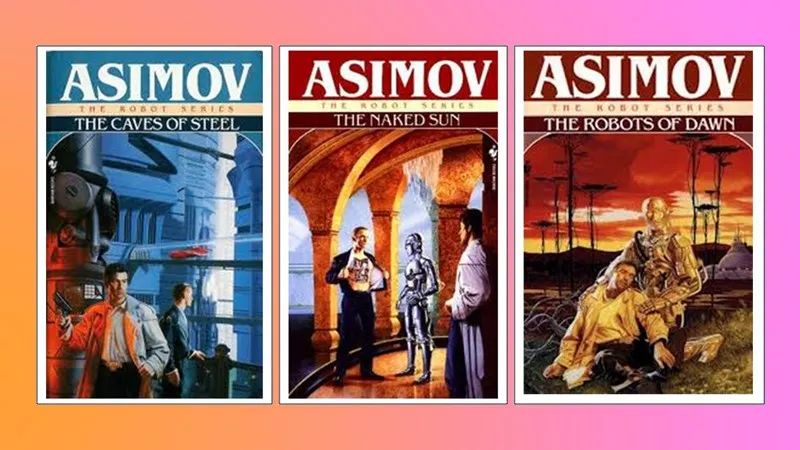
Science fiction is often not only seen as a way to predict the future, but also to prepare us for it. In the golden age of science fiction, Issac Asimov and Arthur C. Clarke and Robert Heinlein can be seen as the "Big Three" of science fiction. These authors cover topics ranging from philosophical free-love Martians to spiritually disrupted spacecraft robots.
Asimov's contribution paved the way for many robotic ethicists and some things that are still being considered by people today: the three laws of robotics. These are immortal in his collections and robotic novel series.
Robots can't hurt humans either or unintentionally.
Robots must obey the orders given by humans unless they contradict the first criterion.
As long as there is no conflict with the first or second criteria, the robot must protect itself.
The complete robot series includes all of Asimov's short stories and novels. If you are interested in his novels, start from Caves of Steel and follow the article's instructions until the last robotic novel: Robots and Empire. Almost all of the robotic weapons that are common in our culture today were created by Asimov.
How to Create a Mind: Revealing the Secrets of Human Thoughts
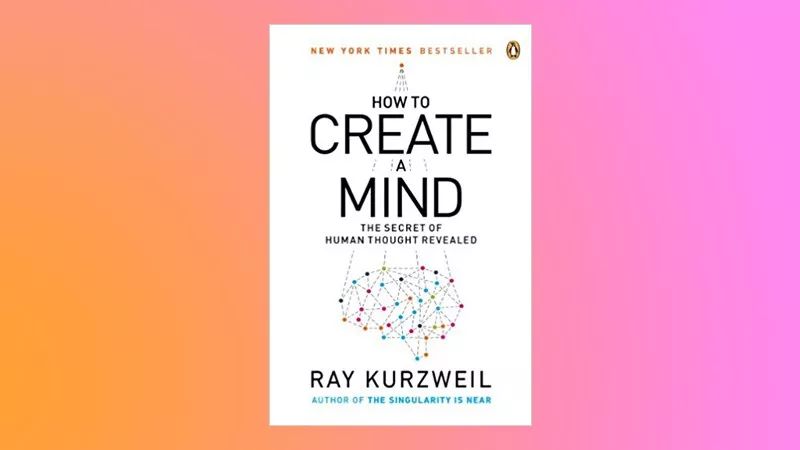
Ray Kurzweil is probably the one who promotes the idea of ​​technical singularity. Among them, for dreamers everywhere, the hope that far exceeds intelligence will eventually appear in the uncontrolled response to self-improvement. With it, you will not know what will happen next in the face of an unknown world, end its history and bring about unpredictable changes. Although not all Kurzweil's predictions are so long, Kurzweil's lesser predictions over the past few years have become a reality.
By combining research on the new cortex, language learning, and the development of artificial intelligence, this book explores in depth many thought-provoking research clues. "How to Create a Mind" is a part of the 21st century artificial intelligence theory, and is also a philosophical theory about the unrestrained power influence of releasing artificial intelligence.
Practical series
Although we may sometimes be lost in the existentialism of artificial intelligence or even in the last days of disagreement (sorry Kurzweil), we are still in the embryonic stage of technology. The early budding of this company still required humanity's originality and some old-fashioned hard coding.
Python Machine Learning: Python Machine Learning
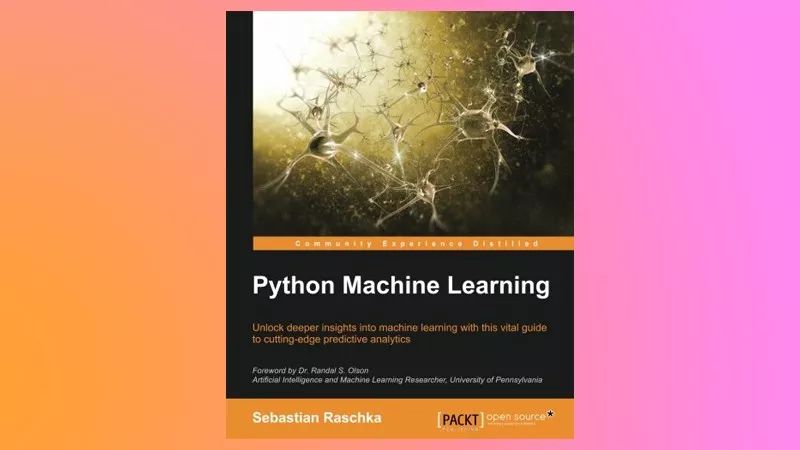
Many of the current breakthroughs in AI have come from machine learning applications. Python has proven to be a good programming language that can be used to enhance knowledge in the field. This book contains Github links and teaches the basics of machine learning through Python.
The teaching purpose of this book:
1. The development of learning algorithms
2. Turn raw data into useful information
3. Classification object
4. Regression analysis
Author Sebastian Raschka lists step-by-step examples of real-world machine learning applications. You can follow the final section of this book to master the necessary skills to perform sentiment analysis in real-time web applications by implementing your own machine learning system.
Deep Learning with R: Machine Learning Based on R Language
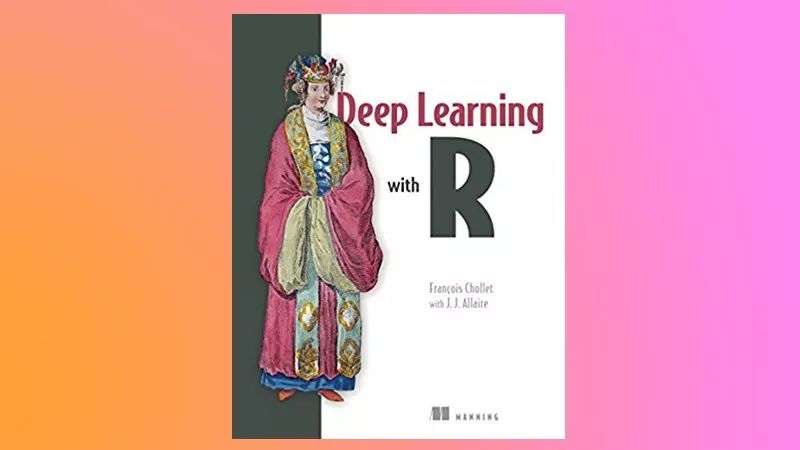
Written by François Chollet, a researcher at Google AI and founder of Keras Library, Deep Learning with R teaches the basics of deep learning in the context of R language. It serves as an excellent instruction manual for the Keras architecture and can be used as a supplement to more theoretical work to gain a more complete understanding of the subject.
1. In-depth study from the first principle
2. Establish your own deep learning environment
3. Classification and generation of images
4. In-depth study of texts and sequences
The reader should have an intermediate level of programming in the R language. You don't need any previous machine learning experience, but if you look at it with another useful book, such as Python Learning, it will do more with less.
Artificial Intelligence: A Modern Approach (3rd Edition): Artificial Intelligence: A Modern Algorithm (3rd Edition)
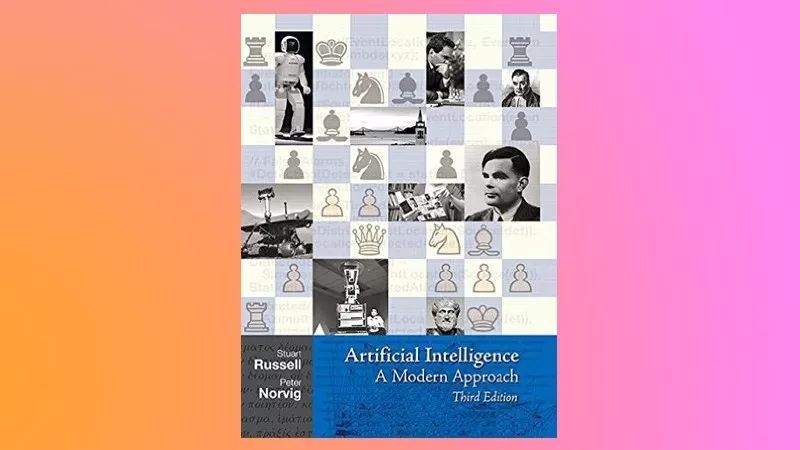
This book should be well-known. This is an artificial intelligence book for undergraduate or postgraduate students, which can help you lead academic journeys. Author: Peter Norvig, Artificial Intelligence: A Modern Approach a book has been used in over 1,200 universities, is one of the most cited publications. Many students think it is easy to read because it is also suitable for laypeople, scientists and even repairmen. As a bestseller in the field, this book provides a comprehensive and constantly updated flow of information on the theory and growing practice of AI.
Ethics and Philosophy Series
The potential flaws in this technology have already written enough movies and stories. The urban mystic rituals and the terminator of Arnold Schwarzenegger made some people tired and a little scared. But these have never let us go away, have we?
Superintelligence: Paths, Dangers, Strategies: Super Intelligence: Roads, Dangers and Strategies
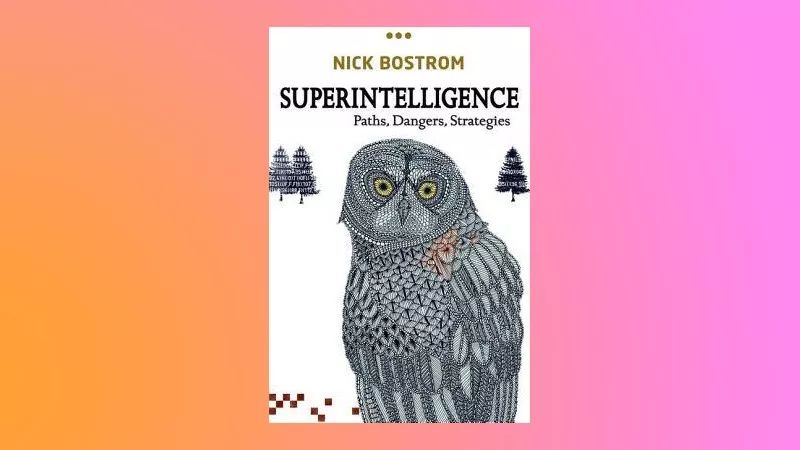
Nick Bostrom's ambitious book has become a classic. The book asks more questions than answers, just as any great philosophical work should. Bostrom wanted to know what would happen if machines could surpass humans in ordinary intelligence. Will these new creatures cause us to fall or save for us?
Regarding human intellectual origins, Bostrom writes, “We know that the blind evolutionary process can help humans produce general intelligence because they have done this at least once. The evolutionary process with vision, which is designed and guided by intelligent human programmers. Genetic programs should be able to achieve similar results with greater efficiency."
Bostrom views the technological philosophy of the 21st century as the real possibility of gaining greater wisdom in this universe.
Life 3.0: Being Human in the Age of Artificial Intelligence: Life 3.0: Becoming Human in the Age of Artificial Intelligence
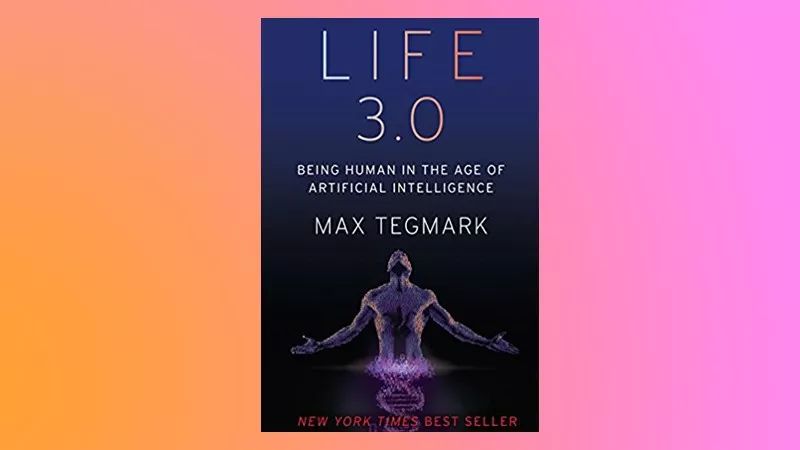
This is the most popular book of Elon Musk, and it is also a book that inspires Musk's inspiration and uses it to propose advanced AI in development like “summoning demonsâ€.
Professor Max Tegmark, a professor at MIT and a great thinker, covered various aspects of the potential future of artificial intelligence. Compared to Bostrom's super smart, it is a bit flat. But its main point is that things are changing rapidly. Its strength lies in helping to understand the development of those who are most affected by AI in daily life.
Robot Ethics: The Ethical and Social Implications of Robotics: Computer Ethics: Computer Ethics and Sociological Applications
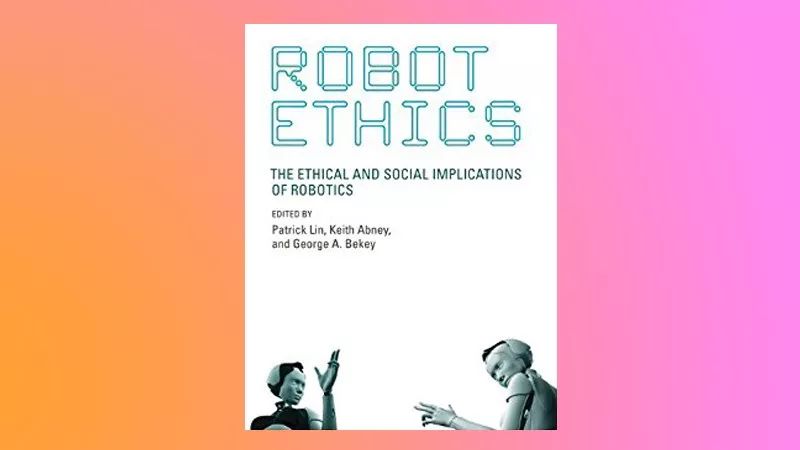
The first two-part series, "Robot Ethics", is the starting point for learning how to design ethics and hard-code it as a robotic system. As ethical issues become more pressing, robotics experts and other technologists need to start thinking about what they can do now to prevent future catastrophic events.
Some of the topics covered include:
1. Explore the emotional bond with robots
2. Programming ethics
3. Military morality in war
4. Responsibility and privacy issues
The supervision of new technologies is usually too late. But the author of this book suggests that we must reverse this trend. Ethics and regulations need to be at the forefront of this changing game rules technology.
Our Final Invention: Artificial Intelligence and the End of the Human Era: Our Ultimate Creation: Artificial Intelligence and the End of the Human Era
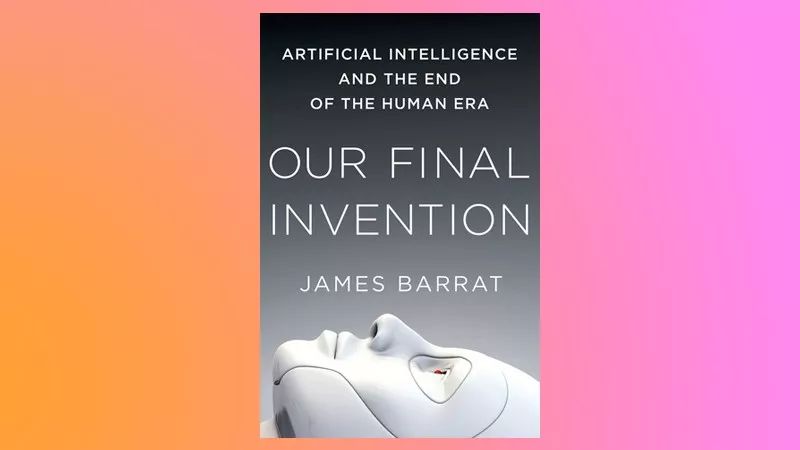
Author James Barrat discusses the fact that many governments and institutions around the world are studying AGI and investing billions of dollars in funds. Many scientists believe that once they reach this lofty goal, these machines will have similar survival driving forces like us.
Barrat explored this idea and, like many other people's opinions, took it as its logical conclusion. The super smart AGI will become a human alien entity.
James wants to know if we are really so powerful, we will serve more purpose for such a strong presence. Will it absorb as much material and energy as possible for its extraterrestrial purposes, but will just leave us alone? For what may happen, this is a frustrating and totally revealing view that reveals images of the hacking empire and other fictional worlds outside of biological life.
Wuxi Lerin New Energy Technology Co.,Ltd. , https://www.lerin-tech.com